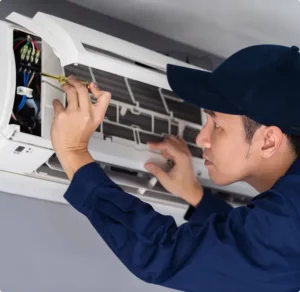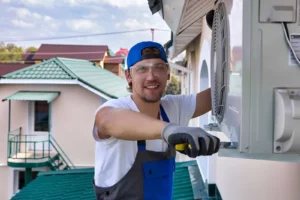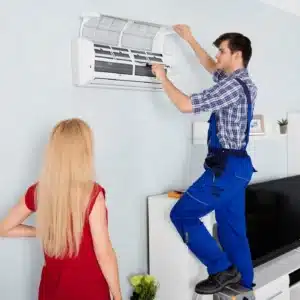Signs Your AC Needs Repair
In Florida’s sweltering heat, a reliable air conditioning system is...
While it’s tempting to crank down the thermostat for instant relief during hot weather, there are practical reasons to consider when setting your air conditioner below 70 degrees. In this blog post, we’ll delve into the factual aspects of why this might not be the best practice for your comfort and your HVAC system.
Setting your air conditioner below 70 degrees significantly increases energy consumption. The system has to work harder to maintain a lower temperature, leading to higher electricity bills. Striking a balance between comfort and energy efficiency is essential to manage your energy costs effectively.
Constantly running your air conditioner at a very low temperature puts undue stress on the system. The compressor and other components have to work overtime, increasing wear and tear. This can lead to more frequent breakdowns, reduced system lifespan, and the need for costly repairs.
Air conditioners not only cool but also dehumidify the air. However, when set below 70 degrees, some systems may struggle to effectively control humidity. Excessive moisture in the air can lead to a clammy and uncomfortable indoor environment, even at lower temperatures.
Setting the thermostat too low can result in overcooling, making your indoor space uncomfortably cold. It’s important to find a temperature that balances comfort with energy efficiency. The recommended range is typically between 72-78 degrees Fahrenheit for optimal results.
Extremely low temperatures can contribute to poor indoor air quality. Inadequate humidity control, coupled with overcooling, may lead to the development of mold and mildew, triggering respiratory issues and allergies. Maintaining a moderate temperature helps strike a balance that promotes both comfort and air quality.
Excessive energy consumption not only affects your household budget but also has environmental implications. Conserving energy by setting your thermostat at a moderate level aligns with sustainability practices, contributing to a greener and more eco-friendly approach.
While it’s tempting to enjoy a chilly indoor environment, setting your air conditioner below 70 degrees comes with practical drawbacks. From increased energy bills to potential HVAC system strain and discomfort, finding a balance in your temperature settings is key. For personalized advice on optimizing your thermostat settings or if you have concerns about your HVAC system’s performance, contact [Your HVAC Company]. We’re here to ensure your system operates efficiently, providing comfort without compromising energy efficiency or system longevity.

In Florida’s sweltering heat, a reliable air conditioning system is...

In Florida’s hot and humid climate, HVAC systems are essential...

Florida’s warm climate brings many advantages, but it also means...

When it comes to keeping your home comfortable in Florida’s...

In Florida’s hot and humid climate, a reliable air conditioning...

If your air conditioner has been chugging along since the...